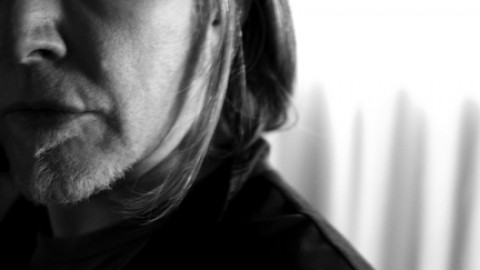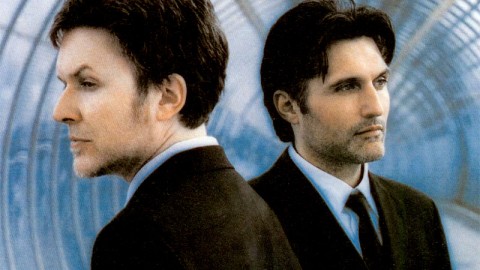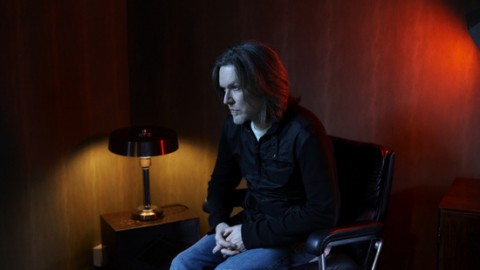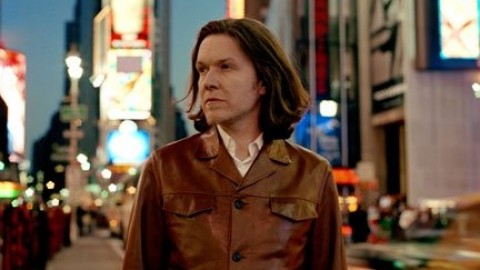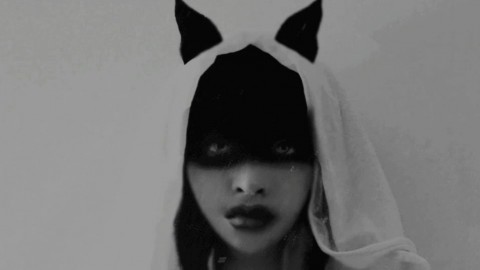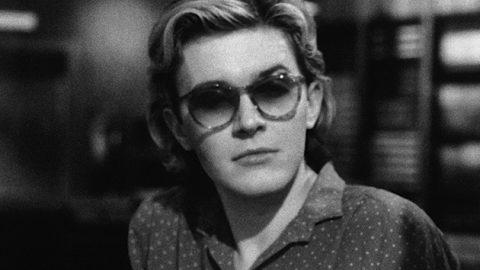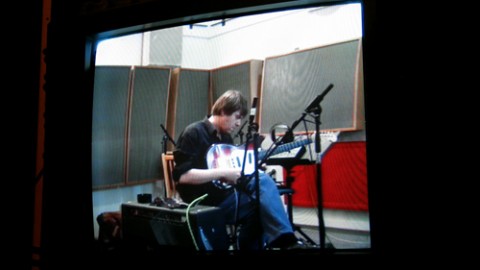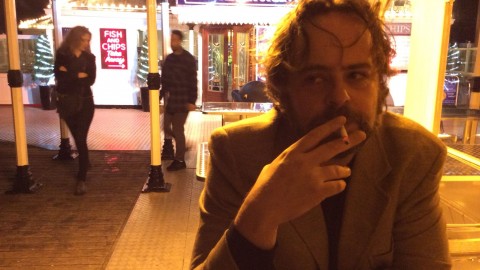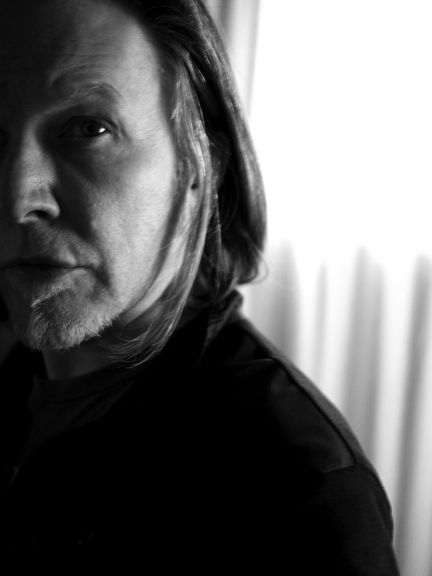
Part two of David’s in depth conversation with Natalia Kutsepova of junkmedia.org.
“See clearly how a man is doing a thing. You will then be in
the position to see what he is really trying to do. If you merely ask
him, or enquire of committed expert, you deserve all you get.”
(Idries Shah)
“Someone somewhere wants to see you
Someone’s traveling towards us all”
(David Sylvian)
NK: Earlier, the terminology of certain teachings was figuring prominently in your songs – “The Golden Way”, “Cover Me with Flowers”, etc. With time, it was gone almost completely. How would you describe the process that reflected in this change?
DS: From the romance of the engagement (which is real and healthy) to the reality of the contract (the vow), to a disentanglement from all that binds.
NK: Is there a destination? What would you want to become, ideally – or at least approach? Is being compassionate, responsible, loving the purpose or a satellite effect of a larger change?
DS: When following a path surely the only real concern is with your personal growth and what furthers that (as this tends to result in a more compassionate, responsible, and loving individual we all benefit)?
Yes, there are always obstacles, each one greater than the last but there are rewards for scaling these otherwise there wouldn’t be the will to go on as suffering is pretty much a given. As with any undertaking there should be discernible results. Knowing the scope for self deception is vast you tread carefully but purposefully.
Being long-term goal orientated doesn’t seem quite the point. Maybe this contradicts the notion that there should be discernable results but how can you comprehend a destination for this approach to life at the outset? Goals should therefore be manageable, humble, not overly ambitious. Sitting on a cushion for 15mins morning and evening without giving in to the desire to reach for the iPhone?
In essence you’re already where it is you want you be. Think of it as a dream you’re having, part joyful, part nightmare, in which you’re trying to get back to the safety, the familiarity of your bedroom. You wake up where you were all along.
“you misunderstood the place where you stand”
Long term, so as not to cop out of giving some indication; call it an attunement to where the division between life and death falls away. Not an end in itself.
Yes, making music has been part of the process for me.
NK: Could you expand on this?
DS: The process of creating music is fraught with dilemmas that highlight shortcomings, entrenched thought processes, self-imposed limitations etc. It has the potential to identify and therefore remove obstacles to growth. It’s what is known as sadhana: Sadhana Sanskrit term : literally “a means of accomplishing something”
NK: Lyrics and poetry. To you, what is the difference? “Manafon”‘s words stand on their own, it seems, much more ably than those of your other records. They are certainly not orphaned without music; there is no obvious dependency. But in the way they came into being, how strong was the connection?
DS: The lyrical content was generally born out of my response to the musical content although there were themes I knew I’d be addressing in some instances before putting pen to paper. They’re also, in my mind, tied to the melodic lines that define them as they’re more or less created simultaneously.
NK: This works both ways, doesn’t it? The language in action, a word being uttered, is in itself music, and much music is – often unconsciously – modeled on the inflections of speech and other expressive sounds. The two meanings – verbal and tonal – converge or collide, often to a striking effect. You’ve been using this method, knowingly or not, with great success throughout your career…
DS: It’s part and parcel of the songwriting experience, yes.
I’ve said before that the difference between a lyric and a poem is that between the lines of a lyric there’s silence which is where the music plays its significant role. The writing is designed for this purpose. Between the lines of a poem, a universe. Any addition is embellishment.
NK: Your singing has also undergone a transformation. What is your relationship with your voice? How did it change over the years?
DS: I find it impossible to discuss my voice. Possibly detrimental, certainly undesirable.
NK: “Manafon” is cutting; it’s the words of a man who is either done for and is about to flip a switch, or has purposely dismantled his reality. Were you trying to sing yourself out of that mindset, is the audible pain a productive suffering, a black and bitter but fertile soil? Or is “not leaving a trace” an earnest goal?
DS: I thought it was an album best released posthumously.
NK: Your writing is exceptionally erudite; quotes and references abound – from Picasso to Sartre, from Bible to R.S.Thomas and – heartbreakingly – Emily Dickinson… Are they simply magnets to you, something that resonated with you at the moment of writing, or do the nods signal an allegiance, a very special connection? Are there figures, teachings, works of art that are beyond reproach, or is everything malleable?
DS: I think my approach in this regard has changed over the years. When younger the isolated man wanted a creative community with which to interact. I formed allegiances with artists both living and dead whose vision I grasped, in which I saw reflected something of my own feeble attempts though expressed far more eloquently. A shared philosophical viewpoint, aesthetic etc etc. I phased out much of the openly quoted from my work during the late 80’s, early 90’s. Now if someone is quoted it’s because the quote clearly serves a purpose, other than simple reference, in the body of the lyric.
NK: Do you have “fathers”? Would you say that musically, intellectually, and emotionally you had influences that made you what you are? Did any of those hinder your movement once you’ve gone past the stage of absorption? Was reverence ever a stumbling block?
DS: When younger reverence might’ve been a slight stumbling block, I can’t be certain. In that I couldn’t always bring myself to say no to invitations by those I respected. I believe there’s always something to be learned through experience of any kind so nothing in a sense is lost but time.
I do believe there were periods where I should’ve remained silent. It would be a blessing if an artist could erase his failures or under achievers and leave only that which served a purpose on his/her departure. It might drive biographers and archivists up the wall but the world would be a better place for the absence of such works. This isn’t said from a position of vanity merely the recognition that there’s too much to avail yourself of in a single lifetime. Best not waste time searching in the wrong quarter for what lies elsewhere.
NK: You work alone. Once you’re done with the contributions, the process becomes invisible. Is this a comfort or a necessity?
DS: Both.
NK: You once said, “Periphery, in every aspect of life, is my rightful place.” It’s easy to read withdrawal into it, a policy of not taking part, but you, I suspect, meant something different.
DS: I feel I am taking part in some cultural exchange however humble my contribution. The periphery is where I find myself. I fought the inevitable for a fairly long time and then… I didn’t. I embraced it. Many lessons in life are resolved by embracing what is.
NK: For what transpires with and within yourself, are you an onlooker? A chronicler rather than a sword-wielding knight? If so, do you feel that the writing process you now employ is, perhaps, a better fit for this position – and thus a logical development?
DS: I think, ideally, one is witness and participant.
NK: Speaking of taking part… having children is obviously as drastic a case of involvement as can be. An immense joy, but also an ocean of thin ice to cross. What is the journey like for you? How did it change you?
DS: Oh dear, that’s an entirely independent subject of conversation. To state the obvious, it changes one’s priorities. A disarmingly short sentence that denotes major shifts in one’s outlook on life. It introduces you to unconditional love and, on the path of non-attachment, presents you with all you’ll ever need to work with.
NK: For those of us for whom it’s still ahead… what proved to be the most (and perhaps unexpectedly?) rewarding in being a father?
DS: Beckett could’ve written his oft quoted line; ‘Fail again, fail better’ for parents because our shortcomings are underlined every single day of our lives. But the beauty is that the love remains constant.
Forgiveness is another of those words bandied about a great deal but to feel it in you heart towards another, or to feel it directed towards oneself (by a child?) [is] quite powerful stuff. If we practiced forgiveness and gratitude every day of our lives we’d be transformed.
NK: Some say birth is a clean slate, but where the real beginning is, we can’t know. When you first knew yourself from everything else, what did you see? What kind of world did you inhabit as a child?
DS: I don’t believe birth to be a clean slate. From what I’ve experienced we come into the world (most of us/all of us?) with quite a bit of baggage or unfinished business.
It’s difficult to recall a time when I wasn’t alienated from my surroundings. There was an awareness of the sense of separation, myself and the other, and the desire to be part of the world I could see around me but they appeared to be mutually exclusive. I’m uncertain how reliable such recollections are but I think this was a sensation I struggled with when young. I wanted to be absorbed into the body of the mother, the family, not excluded (the exclusion was only in the form of the awareness of my independence).
I inhabited the world of my imagination for the most part. Steve and I were always very close. Distinctly different from one another in so many respects, but close. Like most kids, we invented games and scenarios and acted them out. My parents were never financially secure so we weren’t inundated with gifts, toys, even the pleasure of their company was rationed as they always seemed to have so much on their plates, so we were left to our own devices.
NK: You grew up and spun away, far away from your nest – so far that to an outside observer it might seem like you never belonged there at all. Did you ever go back, with a new understanding? Are you in touch with your parents?
DS: No, I never returned. It’s fair to say I didn’t feel as though I belonged. Yes, I’m in touch, and have a beautiful relationship with my parents.
NK: What sustains you these days? It’s very easy to focus on the melancholy in your work: you have, after all, expressed it so powerfully; we seek comfort in sharing these emotions, and they’re part of a compelling human drama. But you are still pressing on, and that is where things get even more interesting. As the world loses all colour and distinction, how do you keep on keeping on?
DS: We’re able to survive on very little it seems to me. Simple human kindness perhaps? Melancholy is a word I’ve never liked, never use. It doesn’t burn deeply enough. ‘there’s comfort in melancholy’ joni mitchell once sang. I’ve been where that comfort doesn’t exist.
NK: But melancholy, as opposed to acute pain, is a part of a natural disposition of a witness, no? And itself a kind of a force…
DS: We see things differently I guess. Melancholy appears somewhat impotent to me. A safety blanket for the soul. We frequently reach for it perhaps but maybe we should learn to live without it?
NK: I feel this disagreement lies in the realm of words, not thoughts. Maybe we should learn to live without behaving like a textbook (passive?) “melancholic”, and instead face the sadness of the world with love, acceptance and resolve, like brave tin soldiers.
DS: When my daughter comes to me in tears and says she feels sad for no reason, after questing her to make sure nothing is untoward, I tend to tell her this is part of what it is to be human and to enjoy the easy, freefalling tears, experience how good it feels to express herself (she breaks into laughter when I say this as it’s never what she expects to hear). God knows in later life sadness isn’t expressed so purely and beautifully.
…has the world lost all its colour? Some, perhaps. But the cover of “Manafon” depicts a visual metaphor for the dwelling place of the imagination. it’s abundant.
NK: Can the realms of imagination and everyday life be one?
DS: Well, what is imagination and what is everyday life? Who/what imagines that everydayness?
NK: Do you expect the colours to return someday, the damage to be repaired – or at least lose some of its importance?
DS: I do, and then some.
NK: There is no undoing it, obviously, no erasing the scars, but there is light ahead, isn’t there?
DS: There’s light everywhere. Even when the soul is in darkness the witness knows this to be true. It’s a source of strength, enables endurance.
Is death and its shadow presence or absence?
Everywhere you turn there’s beauty and sorrow. It’s overwhelming.
It is my work, it does represent me but somehow I shouldn’t be entirely confused with what it is I produce.
NK: You are not. Shadow of death is definitely a quickening presence, though no bugbear… What is death to you?
DS: Transition.
NK: In this culture that, heartbreakingly, deems aging a catastrophe and sells afterlife for good behaviour, how does it feel to have reached a late middle age?
DS: Because of my mental make-up I’ve always welcomed aging. With the sheen of youthful beauty and the radiance of innocence gone something other takes its place. Age has a beauty all its own that is suitably timely. There’s a liberation of sorts from the superfluous, the surface of things:
“you looked into mirrors/where death was at work/of that you were certain/but it was all surface/and surface is numb”
It’s time to work.
NK: Tell us about the rabbits. Hunted in “Brilliant Trees”, killed and skinned in “Manafon”. Are you casting yourself on both sides of the hunt?
DS: The hunting metaphor in relation to the act of creation has a long lineage. Also in relation to the persecution of artists disapproved of by the state. The scapegoat.
NK: “And if everything still matters, what then?” – “There is no maker, just inexhaustible indifference.” And here, to an outside ear, you sound quietly exhilarated. Do you consider the question answered?
DS: I fail to differentiate between the emptiness and the fullness. Whatever the outcome ‘I’ as artifact, false construct, illusion, will not go on. Yes, there’s comfort in that.
NK: Everyone has a horizon, that line we can’t see past – not in ourselves, and not in others. The hope of reaching it dies hard, it seems, so we keep running. Are you still running?
DS: I’ve never considered this horizon. I can’t seem to locate it. I’ve experienced boundlessness, infinite love and peace. I’ve also known the distress and claustrophobia of being absented from that. If running, it’s usually away from self, away from, or towards death. There are many kinds of death in life. If you’re not ready for the one you have to face there will be struggle, yes, running. If I’m running I took the precaution of taking my vows to the pursuit of ‘truth’ so I can’t get far. Witness and participant.
Interview by: Natalia Kutsepova / junkmedia.org
Thank you: Mr Richard Chadwick, for making this exchange possible.
29 05 2010
Original article on davidsylvian.com
